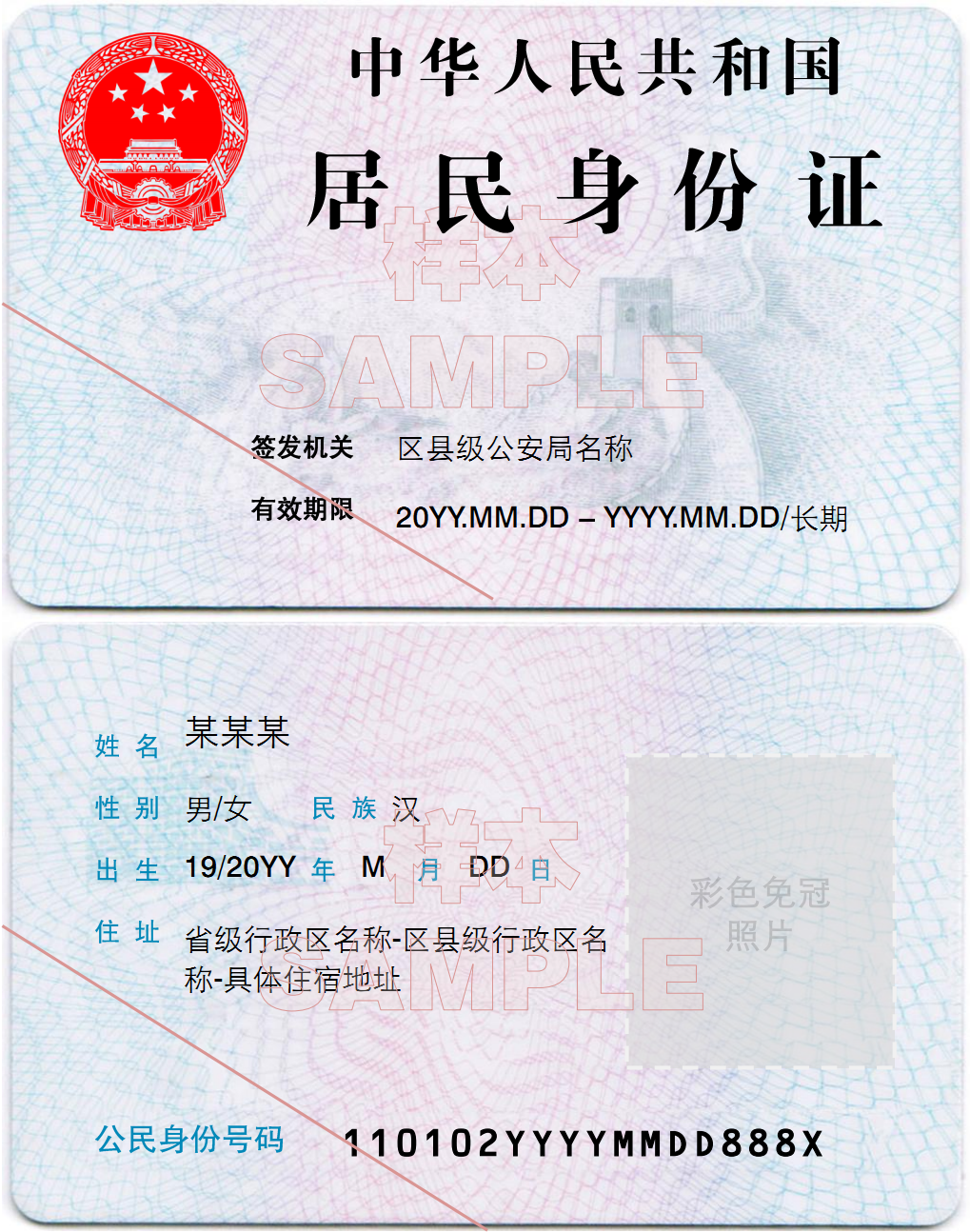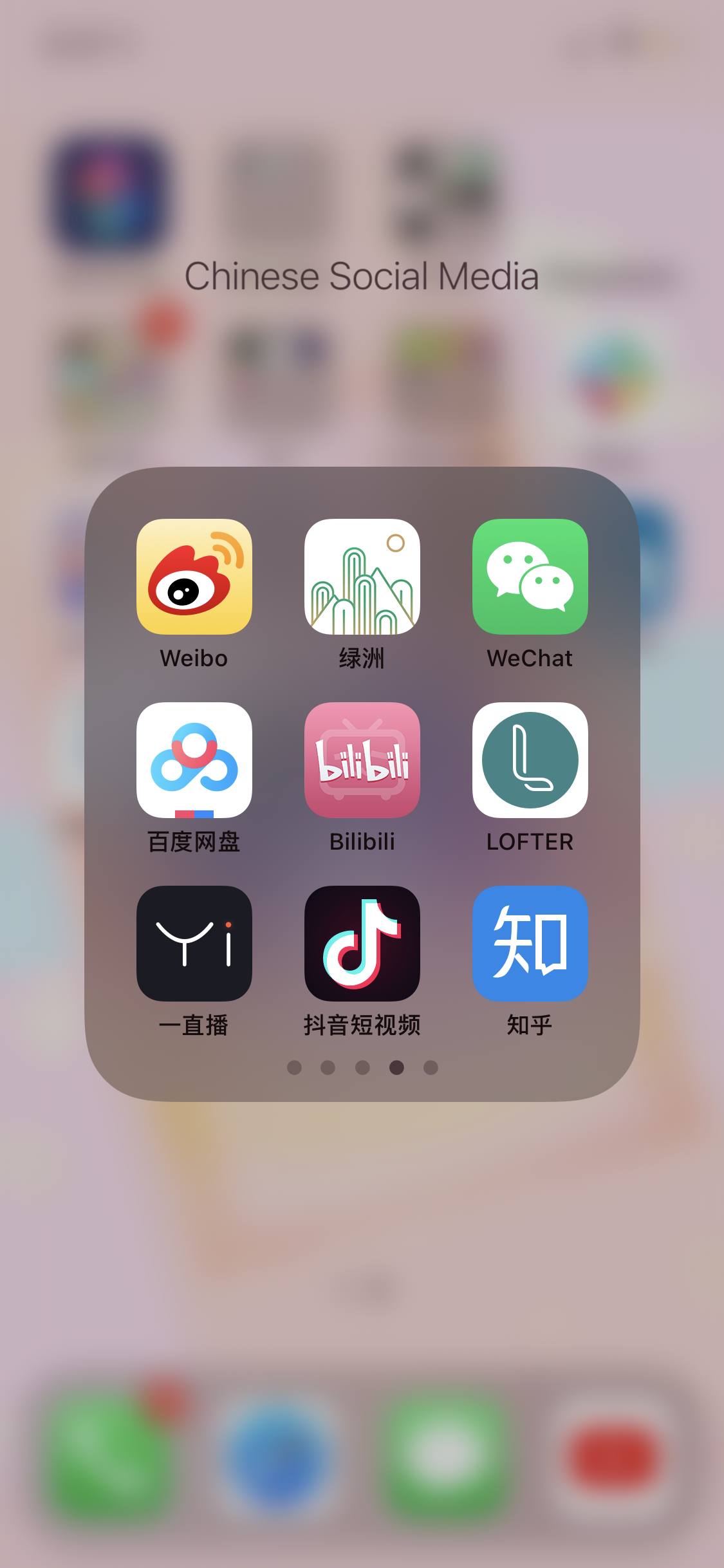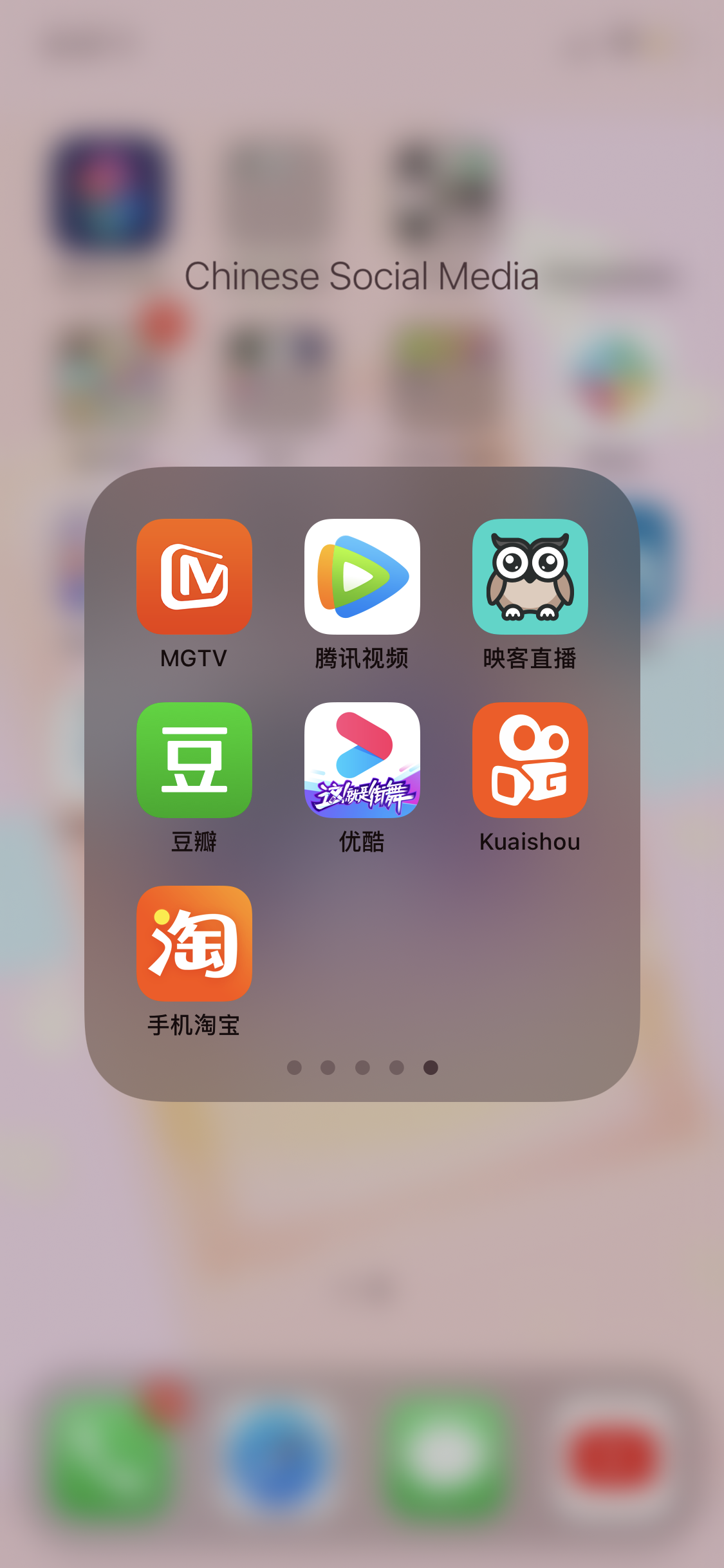<< Hide Menu
2.4 Internet and Healthcare in China
7 min read•june 18, 2024
Emily Guo
Emily Guo
Government Surveillance in China
In China, they have an ID that they use practically everywhere. It's called the Resident Identity Card (身份证 (shēnfèn zhèng)), which is very much comparable to a driver's license. On it, your picture, your name, your gender, ethnic group, date of birth, address, and ID number are present. Now, chips have been added and embedded within the cards that can be scanned as well.
A sample version is below:

Image Courtesy of Wikipedia
China has been slowly working on a Social Credit System and is putting up a surveillance system all throughout the country. This development can redefine public identities as the SCS gives and takes away points from citizens based on actions they take, such as jaywalking and holding the door for someone. In a sense, it becomes an actual version of "The Game of Life" 🧬. It becomes an automatic process to sort its citizens, and citizens can become restricted from taking certain actions, such as not being allowed to fly ✈️ to another region in China if their points are too low.
Internet and Censorship
China has a lot of censorship over what is allowed to be published and viewed from within its borders. It has, if not the most, censorship of any country. The government consistently monitors its citizen's online activity and restricts any activity that goes against the government in any form. The most common offenses made by people are signing petitions about government reform and critiquing the Chinese government. About 18,000 websites were found to be blocked including many popular websites around the world.
Social media is also monitored closely and certain posts will be automatically blocked if certain keywords are in it, and then censors will go over the posts. People in China have a completely different internet world separate from the rest of the world. Google, Facebook, Twitter, Instagram, and many other popular websites and apps are all blocked. The only way to access them is to use a VPN, which can be risky as well. Freedom of the press 🗞️ can be seen as very limited, since most of the controversial events that occur in China, such as the 1989 Tiananmen Square protests, are blocked and restricted from being debated and accessed by their citizens.
For example, in December 2019, the Chinese government censored online discussion and news coverage of the Hong Kong pro-democracy protests. The government implemented strict censorship measures, including keyword filters and content monitoring, to prevent people from discussing or sharing information about the protests online. This included blocking social media platforms like Twitter, Facebook, and Instagram, as well as news websites and other sites that were critical of the Chinese government. The government also arrested and detained individuals who were involved in organizing or participating in the protests, and charged them with crimes such as "inciting subversion of state power."
Here are a few ways the Chinese government censors information online:
- The Great Firewall of China (防火长城 fáng huǒ chángchéng): This is a system of censorship and online surveillance implemented by the Chinese government to block access to certain websites and online content deemed inappropriate or harmful. The Great Firewall is known to block a wide range of websites, including social media platforms like Facebook, Twitter, and Instagram, as well as news websites and other sites that are critical of the Chinese government.
- Keyword filters (关键字过滤器 guānjiàn zì gùlǜqì): The Chinese government uses keyword filters to block or censor certain words or phrases on the internet. This includes words that are deemed sensitive or controversial, such as "human rights" (人权 rénquán), "Tiananmen Square" (天安门广场 tiān'ānmén guǎngchǎng), or "Falun Gong" (法轮功 fǎlún gōng).
- Content monitoring (内容监控 nèiróng jiānkòng): The Chinese government employs a large number of people to monitor and censor online content, including social media posts, blogs, and online forums. Any content that is considered to be inappropriate or critical of the government is removed or blocked.
- Virtual Private Networks (VPNs) (虚拟专用网络 xūnǐ zhuānyòng wǎngluò): VPNs are often used to bypass internet censorship, but the use of VPNs is itself censored in China. The Chinese government has taken steps to block or limit access to VPNs, making it more difficult for people to use these tools to bypass censorship.
- Online platforms (在线平台 zàixiàn píngtái): The Chinese government has also implemented regulations requiring online platforms to censor content and to implement measures to monitor and control user activity. This includes social media platforms, video sharing sites, and other types of online platforms.
Internet censorship in China is a complex and ongoing issue. The Chinese government has a number of tools at its disposal to control and regulate online content, and it is constantly adapting and updating its censorship measures.
Related Vocabulary
- 防火长城 (fáng huǒ chángchéng) - Great Firewall of China
- 关键字过滤器 (guānjiàn zì gùlǜqì) - keyword filters
- 内容监控 (nèiróng jiānkòng) - content monitoring
- 虚拟专用网络 (xūnǐ zhuānyòng wǎngluò) - Virtual Private Networks (VPNs)
- 在线平台 (zàixiàn píngtái) - online platforms
- 人权 (rénquán) - human rights
- 天安门广场 (tiān'ānmén guǎngchǎng) - Tiananmen Square
- 法轮功 (fǎlún gōng) - Falun Gong
- 内容监控 (nèiróng jiānkòng) - Content monitoring
- 虚拟专用网络 (xūnǐ zhuānyòng wǎngluò) - Virtual Private Networks (VPNs)
- 在线平台 (zàixiàn píngtái) - Online platforms
Social Media in China


Social media has grown tremendously in the past couple of years around the world, including China. The growth and development of apps such as Tik Tok (known as 抖音 (dǒu yīn) in China) have a large effect on personal and public identities. Trends on social media may change the way we present ourselves. **微博 (wēi bó)**and 微信 (WeChat (wēixìn)) are some of the most popular social media in China. China creates many of its own companies for its citizens while blocking foreign competitors from being accessed by its citizens. 百度 (bǎidù) is a search engine similar to Google, 微博 is similar to Twitter, and 微信 is similar to WhatsApp.
TV Entertainment in China

Image Courtesy of Flickr
Currently, there are about 3,000 television stations within China. There are about 378 million TVs in China, and on average, each person watches about three hours of TV a day in China. The most popular channels are the China Central Television channel, CCTV (中国中央电视台 (zhōngguó zhōngyāng diànshìtái)), along with provincial networks such as Anhui Television (安徽卫视(ānhuī wèishì)).
Many popular TV dramas and variety shows in China grow to have billions of views through live television, as well as on streaming services such as Youku, Tencent Video, iQiyi, etc. Many are then translated into other languages, much like k-dramas are. Some of these popular dramas are Nirvana in Fire (琅琊榜(lángyá bǎng)), The Journey of Flower (花千骨(huā qiān gǔ)), Eternal Love (三生三世十里桃花(sān shēng sānshì shílǐ táohuā)), Love O2O (微微一笑很倾城(wéiwéi yīxiào hěn qīngchéng)), and Meteor Garden (流星花园(liúxīng huāyuán)). Some of the most popular variety shows are Happy Camp (快乐大本营(kuài yuè dàběnyíng)) and Sing! China (中国好声音(zhōngguó hǎo shēngyīn)).
Related Vocabulary
- 身份证(shēnfèn zhèng)- ID card/Resident Identity Card
- 社交媒体(shèjiāo méitǐ)- Social Media
- 互联网(hùliánwǎng)- Internet
- 手机(shǒujī)- Cell phone
- 照片(zhàopiàn)- Picture
- 社会信用体系(shèhuì xìnyòng tǐxì)- Social Credit System
- 监控系统(jiānkòng xìtǒng)- Survelliance System
- 公民(gōngmín)- Citizen
- 审查(shěnchá)- Censor
- 媒体(méitǐ)- Media
- 防火长城(fánghuǒ chángchéng)- The Great Firewall of China (GFW)
- 政府(zhèngfǔ)- Government
- 电视剧(diànshìjù)- TV Drama
- 综艺节目(zōngyì jiémù)- Variety Show
Healthcare in China
First of all, it's important to note that China has a vast and complex healthcare system, with both public (公共 gōnggòng) and private (私人 sīrén) options available to citizens and residents.
🏥 In terms of public healthcare, the Chinese government operates a network of hospitals (医院 yīyuàn) and clinics (诊所 zhěnsuǒ) that provide affordable medical services to the general population. These facilities are often overcrowded (拥挤 yōngjǐ) and underfunded (资金不足 zījīn bùzú), but they do offer a range of services, including preventive care (预防性医疗 yùfáng xìng yīliáo), diagnosis (诊断 zhěnduàn), treatment (治疗 zhìliáo), and surgeries (手术 shǒushù).
💊 For more specialized or advanced medical treatment, many Chinese people turn to private hospitals and clinics, which tend to be better equipped and staffed. Private healthcare (私人医疗 sīrén yīliáo) can be expensive (昂贵 ángguì), but it is generally considered to be of higher quality than public healthcare (公共医疗 gōnggòng yīliáo).
🧑⚕️ In terms of the overall healthcare system in China, the country has made significant progress in recent years in improving access to medical care and reducing the burden of disease. However, challenges remain, including shortages of trained medical professionals, particularly in rural areas (农村地区 nóngcūn dìqū), and ongoing issues with air pollution (空气污染 kōngqì wūrǎn), which can have negative impacts on public health.
💉 The healthcare system in China is constantly evolving (不断发展 bùduàn fāzhǎn) and improving (改进 gǎijìn), and the country has made great strides in improving access to medical care for its citizens and residents.
Related Vocabulary
- 公共 (gōnggòng) - public
- 私人 (sīrén) - private
- 医院 (yīyuàn) - hospital
- 诊所 (zhěnsuǒ) - clinic
- 拥挤 (yōngjǐ) - overcrowded
- 资金不足 (zījīn bùzú) - underfunded
- 预防性医疗 (yùfáng xìng yīliáo) - preventive care
- 诊断 (zhěnduàn) - diagnosis
- 治疗 (zhìliáo) - treatment
- 手术 (shǒushù) - surgery
- 人员配备 (rén yuán pèibèi) - staffed
- 私人医疗 (sīrén yīliáo) - private healthcare
- 昂贵 (ángguì) - expensive
- 公共医疗 (gōnggòng yīliáo) - public healthcare
- 农村地区 (nóngcūn dìqū) - rural areas
- 空气污染 (kōngqì wūrǎn) - air pollution
- 不断发展 (bùduàn fāzhǎn) - constantly evolving
- 改进 (gǎijìn) - improving

© 2024 Fiveable Inc. All rights reserved.